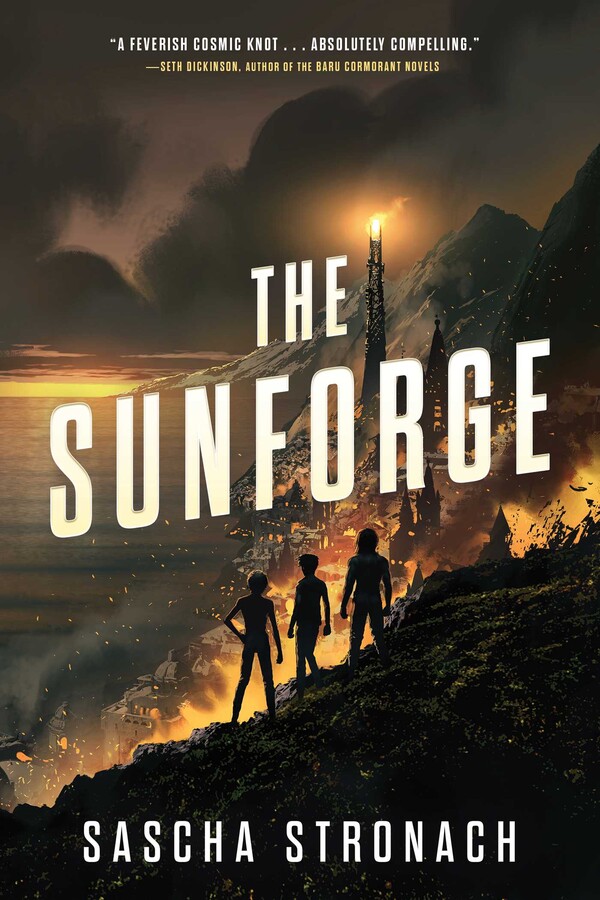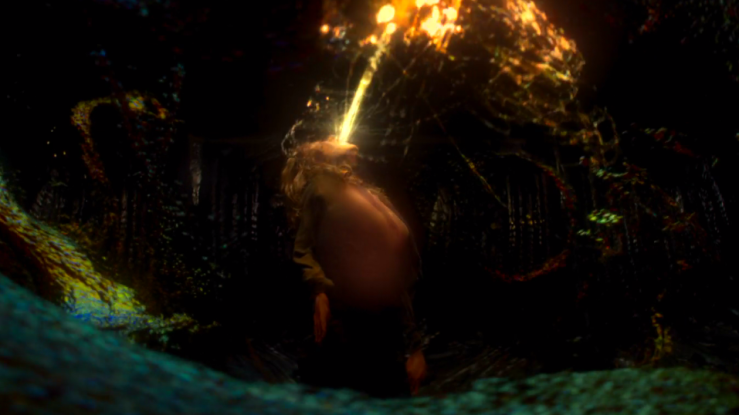Content warning: this essay discusses The 2018 film Annihilation, and particularly the character of Dr Josie Radek and her history of self-harm and suicide. Also here be spoilers.
I read Annihilation when it came out in 2014, and I hated it. I left a long, angry 1-star Goodreads review about its poor writing, its terrible worldbuilding, its refusal to answer the questions it asked. That review, for years, was the top-rated Goodreads review for the book. A few years ago, I quietly deleted it. Knowing I wrote it in the first place makes me uncomfortable; I live in terror that I’m going to meet Jeff VanderMeer and he’s going to go “hey, aren’t you that 1-star asshole?”
Because he’s not wrong. I gave it a 1-star review, and I was an asshole. And as I’ve gotten older and I’ve read and written more, I’ve come to understand Annihilation very differently, and understand criticism and genre very differently too.
There is a scene in Alex Garland’s Annihilation (2018) where Tessa Thompson walks through an arch in a garden, and I cannot watch it without breaking down. The film and the book are different beasts: Garland has said in interviews that he wasn’t trying to make a strict adaptation, rather relying on a memory of the book and trying to adapt the VIBE. That vibe is a messy, complex journey through identity and the way pain shapes it. In both the book and the movie, a small team of scientists enter a region of the Florida Everglades called the shimmer, which is being overtaken by an alien ecosystem. In the film, they are confronted by literalisations of that pain – intestines that writhe like snakes, a skinless bear with a woman’s face that screams in a woman’s voice – and one by one they hurl themselves against it and it destroys them.
When Doctor Radek confronts her pain, it doesn’t manifest as a monster, but instead as a garden. It is beautiful, it enthralls her, and for perhaps the first time in the movie we see her smile. She removes her jacket, revealing extensive scarring from self-harm and suicide attempts, and then she walks into a green arch and disappears.
A literal reading of the scene fails. If you wanted to TVTropes it, like I did to the book in 2014, you’d make a fool out of yourself. They never established that she could teleport, Chekhov’s Gun FAIL, Crowning Moment of Suck. That doesn’t matter: that’s not what the film is trying to do, it exists in a space of almost pure metaphor, and it’s that metaphor that turns me into a weeping wreck whenever I watch it.
Annihilation isn’t some bullshit instagram exploration of pain, it doesn’t pat you on the shoulder and say What Doesn’t Kill You Makes You Stronger in a loopy font over a picture of a forest. In many cases, the team members’ trauma is exactly what kills them. They flare out, they repress and implode, they become so twisted by pain that they don’t even recognise themselves. The film explicitly compares pain to cancer, a thing that metastasizes and consumes, that takes healthy parts of the body and turns them into more of itself. Jennifer Jason Leigh’s Ventress has literal cancer, and she refuses to confront her coming death or her pain, and in the end her tumour erupts out of her in a great molten geyser and twists her body into a cruel mimicry of itself. Both Radek and Ventress – in very different ways – become their pain.
The garden isn’t inevitable, or even likely, but it’s there, and Josie finds it; she finds beauty and peace in her pain, and then she transcends it entirely. Josie stares down her trauma, and becomes the garden. Whenever I watch that scene, a wave rolls over, equal parts hope and grief. It’s one of the few things that can reliably make me cry. I have my own history with depression, self-harm, and suicide, and Annihilation provides me a catharsis like I’ve never experienced. It is pure metaphor, and it’s the realest shit I’ve ever seen.
I can’t actually speak for the book. I haven’t read it since 2014, and every time I try, I fall to pieces. I know the film will destroy me, but I know how, and I’m ready to confront that. The book though? I read it poorly, as pure literal SF/F, and I barely remember it outside of the monsters, and knowing what I know now, I’m terrified that reading it will snap me in half. I’ve already dealt with Tessa Thompson going through that arch, I’m not sure I can bring myself to do it again with a different doctor. I can’t remember whether VanderMeer’s doctor even goes through an arch, whether there’s a garden, and I don’t know whether I have the strength to find out. I fucked it up for myself and I don’t know whether I can go back.
It’s not like I grew up on entirely a diet of mass-market lowest-common denominator media, I studied English literature at university and was (and still am) a huge fan of surrealist poets like John Ashbery and Arthur Rimbaud, I knew how to spot a fucking metaphor, but somehow when I read VanderMeer’s Annhilation I read it on a purely literal level. Sci-fi can’t have metaphors! It’s about action and mystery and monsters! Those things can’t mean anything! I’d put a wall around the genre that said it worked like this, and when it didn’t work like that I got angry and blamed it on the author.
I’ve seen a review of 100 Years of Solitude that 1-stars it for not following Sanderson’s Laws of Magic, and while I wasn’t that bad, I was doing exactly the same thing. Genre is not a straitjacket, and we are worse writers and readers if we treat it like one. I did, and I gave Annihilation an angry 1-star review because it didn’t have enough tropes, then four years later I saw Annihilation and nearly had a nervous breakdown.
Which is a lot of words to say Take A Work On Its Own Merits but I hope it illuminates it in a way that sticks. Annihilation deserves so much more than I gave it, and it’s not alone. Be better than me and read generously – when I finally did, I found a garden.

